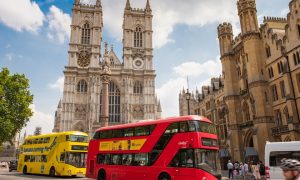The UK is famous for its comprehensive social welfare and strict tax system.immigrantsThe ideal destination for those who seek a high quality of life. However, how to maximize the benefits and legally fulfill tax obligations after immigration has become one of the most important issues for immigrants. This article will explain the UK's social welfare policy and tax system in detail to help you understandImmigration to the UKImportant policy details to grasp later.
1. Overview of the UK Social Welfare System
The UK's social welfare system covers many aspects including medical care, education, housing, unemployment assistance, etc., providing living security and support for immigrants.
1. Medical benefits: National Health Service (NHS)
The UK National Health Service (NHS) is one of the most complete public healthcare systems in the world, and almost all residents can enjoy free medical services.
- Scope of application: Immigrants holding legal residence visas are entitled to NHS services, including primary care (such as general practitioners) and emergency medical care.
- IHS: An Immigration Health Surcharge is required when applying for a visa. The fee is calculated based on the length of the visa, but it covers most medical expenses.
2. Educational benefits
The UK provides free compulsory education for children aged 5 to 16. In addition, children from immigrant families can enjoy certain tuition discounts and student loan policies during higher education.
- Free public schools: All children legally residing in the UK can attend state schools.
- Student loans: Immigrant students who meet the residency requirements can apply for tuition loans provided by the government.
3. Housing and unemployment benefits
- Housing Benefit: Eligible low-income households can apply for rental assistance, but they must meet residency and income thresholds.
- Unemployment benefits: Unemployed immigrants can apply for Jobseeker's Allowance, provided that they are actively looking for work.
4. Pension benefits
Immigrants can accumulate pension eligibility after working in the UK and paying National Insurance (NI).
- Basic pension: At least 10 years of NI payment record is required.
- Automatically registered occupational pension plan (Workplace Pension Scheme): contributed jointly by employers and employees.
2. Detailed explanation of the UK tax system
The UK's tax system is rigorous and complex. Immigrants need to be familiar with tax types and reporting rules to ensure that they pay taxes legally.
1. Income Tax
Personal income tax is one of the main taxes in the UK and is levied on a segmented basis according to income level:
- Duty Free AllowanceThe standard tax-free allowance for 2024 is £12,570.
- tax rate::
- Annual income £12,571-50,270: 20%
- Annual income £50,271-£125,140: 40%
- Annual income over £125,140: 45%
2. National Insurance (NI)
National Insurance is an important tax used to finance pensions, unemployment insurance and health insurance. Both employees and employers have to pay it, and the specific rate depends on income level.
- It is payable on annual income over £12,570.
- Self-employed people are required to pay NI on their profits.
3. Value Added Tax (VAT)
The UK imposes VAT on most goods and services at a standard rate of 20%. Some necessities (such as food) enjoy lower rates or are tax-free.
4. Council Tax
Immigrants living in the UK need to pay property taxes to support local public services. Property taxes vary from hundreds to thousands of pounds per year, depending on the location and assessed value of the property.
5. Corporate Tax
If immigrants choose to start a business, the company's profits will be subject to corporate tax, with the tax rate in 2024 being 25%.
6. Inheritance Tax
Estates with assets exceeding £325,000 are subject to inheritance tax at the rate of 40%. The inheritance tax burden can be reduced through the use of a trust or estate planning.

3. The relationship between taxation and welfare after immigration
1. Tax-supported welfare system
The UK's welfare funds mainly come from taxes, especially personal income tax and national insurance. While enjoying welfare, immigrants also need to fulfill their tax obligations.
2. How to avoid tax problems
- Filing tax returns on time:Self-employed persons need to file their own annual tax returns (Self Assessment) and must ensure accuracy and timeliness.
- Use legal tax planning: Optimise your tax bill through an ISA account (tax-free savings account) or a pension plan.
- Consult a tax advisor: For complex assets or cross-border income, it is recommended to hire a professional advisor to handle tax issues.
IV. Frequently Asked Questions and Answers about Immigration
1. How long does it take for immigrants to receive benefits?
Some benefits (such as NHS care) are available immediately upon legal residence, while others (such as housing allowance) may require a certain period of residence or work record.

2. How to avoid multiple taxation?
Through the double taxation agreements signed between the UK and other countries, immigrants can avoid double taxation on the same income. Applicants need to provide relevant certificates and fill in tax forms.
3. Do retired immigrants enjoy pensions?
Immigrants who pay national insurance while living in the UK can accumulate pension entitlements and receive part of their pension even if they return to their country of origin.
5. Financial planning advice after immigration
1. Plan your taxes and assets in advance
- Open an ISA account and save tax-free.
- Develop tax planning for cross-border assets to avoid high tax burdens.
2. Flexible use of welfare resources
- Make sure you register your place of residence to receive benefits such as housing subsidies.
- Apply for Working Tax Credit to support household expenses.
3. Keep an eye on policy changes
The UK's welfare and tax policies may be adjusted due to economic or political factors, so you need to keep up to date with the latest developments on a regular basis.
VI. Summary
Immigration to the UKFinally, fully understanding the social welfare and taxation system is an important step in integrating into a new life. Whether it is NHS medical care, educational resources, or pension security, they all reflect the superiority of the UK's welfare policy. At the same time, immigrants need to fulfill their corresponding tax obligations. Through reasonable planning and management, they can maximize the use of welfare and reduce unnecessary tax expenditures.
I hope this article provides you with a clear policy interpretation and helps youUK immigrationStart a stable and comfortable new life!






